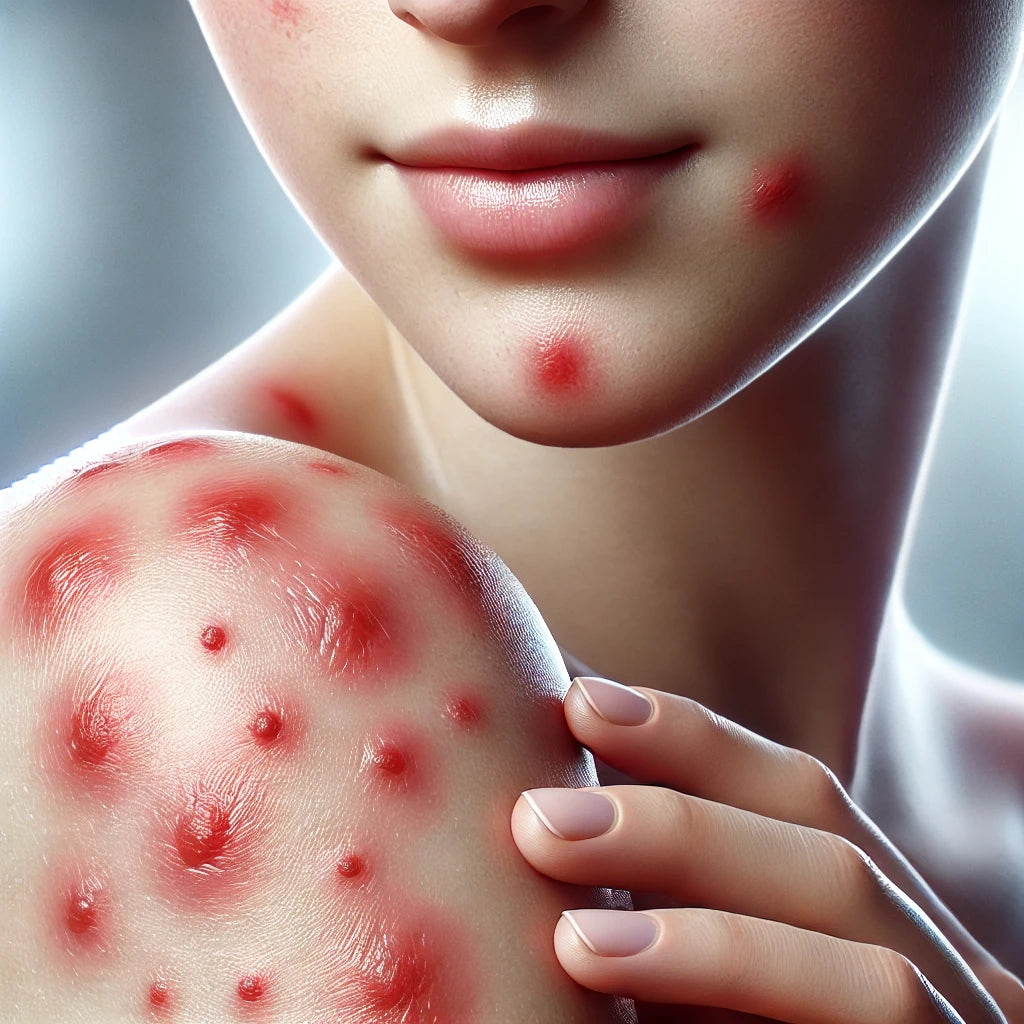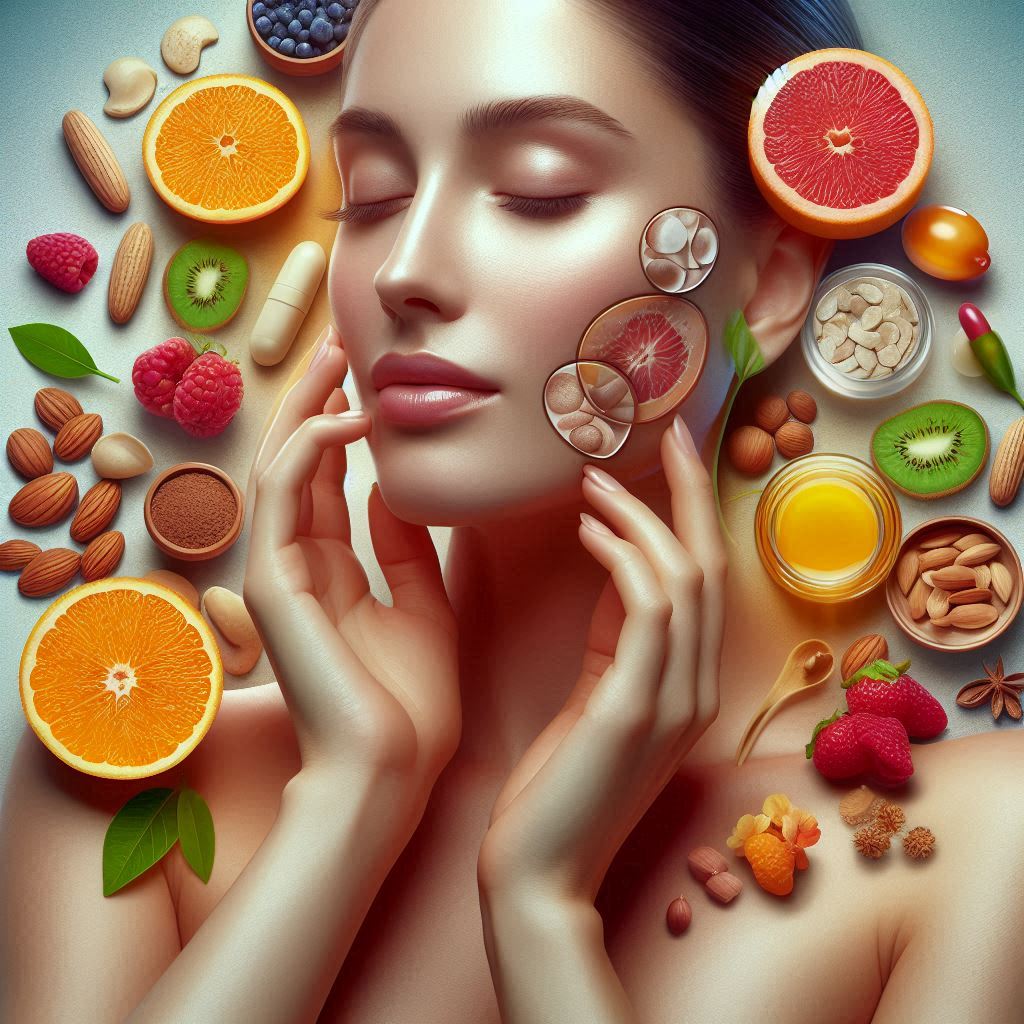News — skin health
Neem: Natural Antiseptic & Skin Healer – Benefits & Uses
acne treatment antibacterial antifungal Azadirachta indica detox herbal remedies immune support LongLifeNutri natural antiseptic Neem neem oil skin health
For centuries, Neem (Azadirachta indica) has been revered as a powerful natural remedy for various skin ailments, infections, and immune health. Known as the "Village Pharmacy" in India, this medicinal tree is packed with antibacterial, antifungal, and anti-inflammatory properties, making it one of the most versatile herbal solutions for skin and overall health.
Modern science confirms Neem’s effectiveness in treating acne, eczema, psoriasis, wounds, and even fungal infections. If you're looking for herbal supplements to maximize Neem’s benefits, check out LongLifeNutri’s collection of products for skin health, immunity, and detoxification.
The Gut-Brain-Skin Axis: A Guide to Holistic Health
gut health gut-brain-skin axis holistic health holistic wellness mindfulness nutrition probiotics self-care skin health
In our quest for overall well-being, we often overlook the profound connection between our gut, brain, and skin. This interconnected network, known as the gut-brain-skin axis, plays a crucial role in our physical and emotional health.
In this comprehensive guide, we explore how these systems interact, the role of nutrition and lifestyle, and practical strategies to enhance your holistic health.
Skin Reactions to Medication: Understanding and Managing Drug Rashes
allergic reaction drug allergy drug rash drug reactions drug-induced rash healthcare guide hives immune response medical conditions medication side effects rash treatment skin allergies skin care skin health skin reaction Stevens-Johnson Syndrome symptoms of drug rash toxic epidermal necrolysis types of drug rashes urticaria
Skin reactions to medication, often called drug rashes, are surprisingly common and can range from mild to severe. These reactions occur when the body’s immune system responds to a drug as though it were a harmful invader, triggering inflammation and other skin symptoms. Drug rashes can vary widely in appearance, from mild red spots to severe, life-threatening conditions. Recognizing and understanding these reactions can be crucial, especially if immediate intervention is necessary.
This guide will cover everything you need to know about drug rashes, including common symptoms, risk factors, types of drug-induced rashes, and when to seek medical help. We’ll also provide helpful tips on how to manage mild cases and prevent recurrence. Read on to learn how to identify, treat, and prevent skin reactions to medications, ensuring both safety and peace of mind.
Radiant Skin with Riboflavin: A Nutritional Approach
acne antioxidants collagen production collagen synthesis deficiency eczema food sources free radicals healthy skin oxidative stress radiant skin riboflavin riboflavin deficiency skin aging skin elasticity skin glow skin health skin hydration supplements vitamin B2 youthful skin
We all strive for that healthy, radiant glow—a complexion that reflects inner vitality and good health. While skincare routines play a significant role, nourishing our bodies with the right nutrients is equally important. Riboflavin, a vital B vitamin, often overlooked, holds a key to achieving that coveted radiance from within.
Riboflavin, also known as vitamin B2, is a powerful nutrient that plays a crucial role in various bodily functions, including energy production, cell growth, and antioxidant defense. But its benefits extend beyond these fundamental roles. Riboflavin's involvement in collagen production and its potent antioxidant properties directly contribute to maintaining healthy, youthful, and radiant skin.
Skin Cancer Screening: How Often Should You Check Your Skin?
ABCDE rule cancer awareness dermatologist visit early detection melanoma signs monthly skin checks self-skin exam skin cancer awareness skin cancer prevention skin cancer risk factors skin cancer screening skin cancer symptoms skin cancer treatment skin check frequency skin health sun protection tanning bed risks
Understanding the importance of skin cancer screening and knowing when and how often to check your skin can help you catch warning signs early. Skin cancer screening is a simple, proactive step toward protecting your health, and it’s easier than you might think. In this article, we’ll discuss how often you should check your skin, the best methods for self-examinations, and when to see a dermatologist for a professional skin cancer screening.





